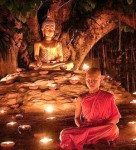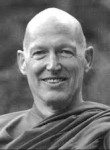What could be easier than just letting go? If we had nothing to hold on to, nothing to reach for, nothing to drop, what would that be like? What about dropping opinions about politics? Sports? Religion? A Zen master once famously shouted as he saw a monk dozing in a zendo: ZAZEN MEANS DROPPING OFF BOTH BODY AND… Continue reading Zen Drops Off Body And Mind
Category: No self
Zen, Clear Water And Muddy Water
My law partner walked into my office a few years ago and announced that he had just had an amazing conversation. You won’t believe this, he began, but I just spoke to a guy who said he has no cell phone, no computer, and no idea what the Internet is, and this guy was bragging. Well, my clientele… Continue reading Zen, Clear Water And Muddy Water
Zen And Dreams Within Dreams
We can all agree that nothing happens in a dream. Most dreams are classified as anxiety dreams – we dream about what we worry about. More than once we have all awakened and realized with a sense of relief that we have been dreaming and all those worrisome thoughts were about something that wasn’t real. Any hack can… Continue reading Zen And Dreams Within Dreams
Zen Practice And Sakkaya Ditthi
Sakkaya ditthi, the wrong view of self, is the first of the ten fetters that bind unenlightened beings. Its counterpart or antidote is Right View or Right Understanding, the first fold of the Eightfold Path. Until we arrive at samma ditthi, the correct view of self, it’s hard to loosen the other nine fetters. Who practices… Continue reading Zen Practice And Sakkaya Ditthi
Zen Emptiness Is Fullness
“All sentient beings” includes ourselves but “no sufferer is found, no doer of the deeds is there.” No person enters Nirvana and the path has no traveler. So who suffers, who does deeds, who enters Nirvana and who travels the path? Who finds the answer to these questions? When the Buddha announced the doctrine of… Continue reading Zen Emptiness Is Fullness
Zen Practice And Judgement
The famous Bible (Matthew) verse: “Judge not that ye be not judged” has two (2) meanings, I think. The obvious, mundane meaning is that the law of karma (the law of cause and effect) will operate and we will be judged by others if we first judge them. The second, deeper meaning is that the very… Continue reading Zen Practice And Judgement
The Zen Bell Tolls For No One
If there is no independent self, what is there? Buddhism teaches that nothing exists independently of anything else. Everything we see, hear, smell, taste or touch is connected to something else. Nothing exists in a vacuum. John Donne’s Meditation XVII, published in 1624, includes the passage made famous by Ernest Hemmingway: No man is an… Continue reading The Zen Bell Tolls For No One
Zen Master Ajahn Brahm
Venerable Ajahn Brahm does not teach the meditation techniques taught by the Zen school. As we have emphasized throughout the How To Practice Zen website, the term “Zen” means meditation and we share the teachings of all Buddhist schools without limitation to the Zen school. It is called the Zen school because it emphasizes meditation… Continue reading Zen Master Ajahn Brahm
Why do we practice Zen?
Modern Zen practitioners usually sit on mats and cushions indoors but we practice outdoors whenever it’s reasonable to do so. Even the Buddha eventually established monasteries where people could sit indoors. The purpose of sitting in meditation is not to see how much hardship a person can endure. We don’t sit because we believe that… Continue reading Why do we practice Zen?
Zen And No Two Things
A man wrote a letter to the editor of The St. Petersburg Times in the spring of 2009, saying that he wanted oil companies to drill for oil in the Gulf of Mexico off the west coast of Florida “because we need a victory over the all-powerful environmentalists.” That was about a year before the… Continue reading Zen And No Two Things









